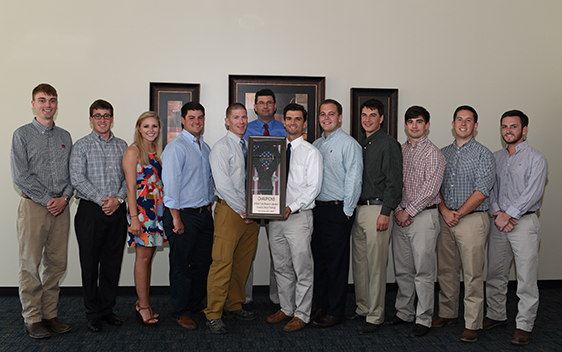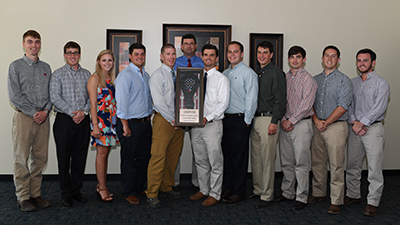Auburn mechanical engineering students win U.S. Air Force challenge for fast-rope solution
A senior student design team in Auburn’s Department of Mechanical Engineering has won the 2016 Air Force Research Laboratory University Challenge. The team developed a device to make it easier for special tactics battlefield airmen to deploy from a helicopter, in locations where the helicopter cannot touch down, using a technique known as fast-roping.
The AFRL narrowed the field to nine finalists from 17 universities to solve this year’s difficult problem. The mission was to design and develop a descending system that allows military personnel with heavy equipment loads to safely, rapidly and effectively exit a helicopter via a thick, braided rope.
 |
| From left: Brent Gilbert, Zach Martin, Meredith Jones, Logan Brost, Mike Lazalier, Devon Parker, Morgan Pelt, Caleb Clemons, Josh Grant, Ric Guilliand, Jake MacKay and Dalton Roe |
“During missions, U.S. Special Forces deploy by quickly sliding down a rope from a hovering helicopter, or what is called fast-roping,” said David Beale, professor in Auburn’s Department of Mechanical Engineering and senior design team adviser. “They risk burning their hands from rope friction, even when wearing thick gloves, and injuring themselves by descending too quickly and hitting the ground with too much force, particularly if they are carrying equipment.”
Auburn’s work yielded a Tactical Rope Insertion Assist Device, or TRIAD, and tactical gloves. The TRIAD, according to the student team’s product description, is a passive assist device utilizing a roller-damper system that eliminates rope burn, controls descent and increases safety. It was tested up to 450 pounds and successfully lowered weight with a controlled descent speed as low as 6 feet per second. The TRIAD also was designed to utilize interchangeable rotary dampers to allow for multiple descent speeds or users of different weights.
“The competition was tough this year. But, Auburn was the only team that looked at the total set of requirements,” said Mike Lazalier, an AFRL Design Challenge competition judge. “Auburn’s team went outside the box. The operators who tested the device felt safe using it and loved it. The engineering and design effort was impressive.”
An appealing feature of the device, according to Devon Parker, past host and manager of the national AFRL Design Challenge competition, is it will require minimal, if any, additional design work.
“The system is very close to being fieldable,” Parker said. “We sent two operators down using one device. This is something we didn’t do with any of the other devices we tested. The operators want to take this out and use it right away.”
In addition to the TRIAD, a tactical glove was designed specifically for fast roping. The glove is ergonomically friendly, can be used while operating a weapon, and reduces the heat transferred to the hand during the fast roping operation.
“I’m very proud of the team’s overall results. They did a fantastic job,” said Beale, team adviser. “They worked really hard testing the system and created a device that will advance the technology for our U.S. special operations forces.”
Senior design team undergraduate students included co-team leaders Caleb Clemons and Morgan Pelt, Logan Brost, Brent Gilbert, Ric Gilliland, Josh Grant, Meredith Jones, Jake MacKay, Zach Martin and Dalton Roe. Graduate student Austin Gurley helped steer the design effort; graduate student Wesley Hunko assisted in manufacturing the device; and Lewis Payton, associate research professor in mechanical engineering and director of the Design and Manufacturing Lab, and Roy Broughton, professor emeritus in polymer and fiber engineering, provided guidance throughout the project.
Media Contact: , gail@auburn.edu, 334-844-3447





